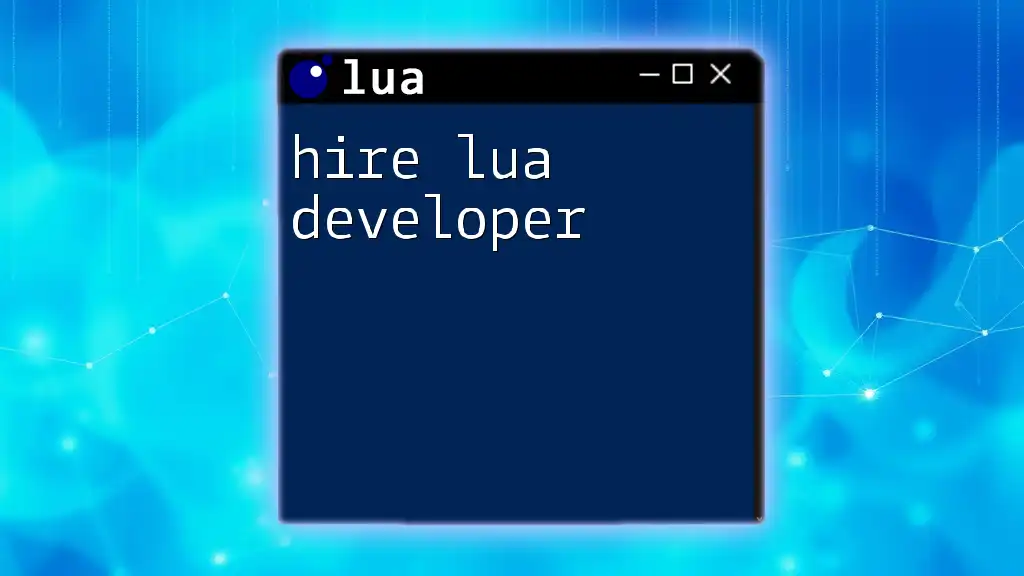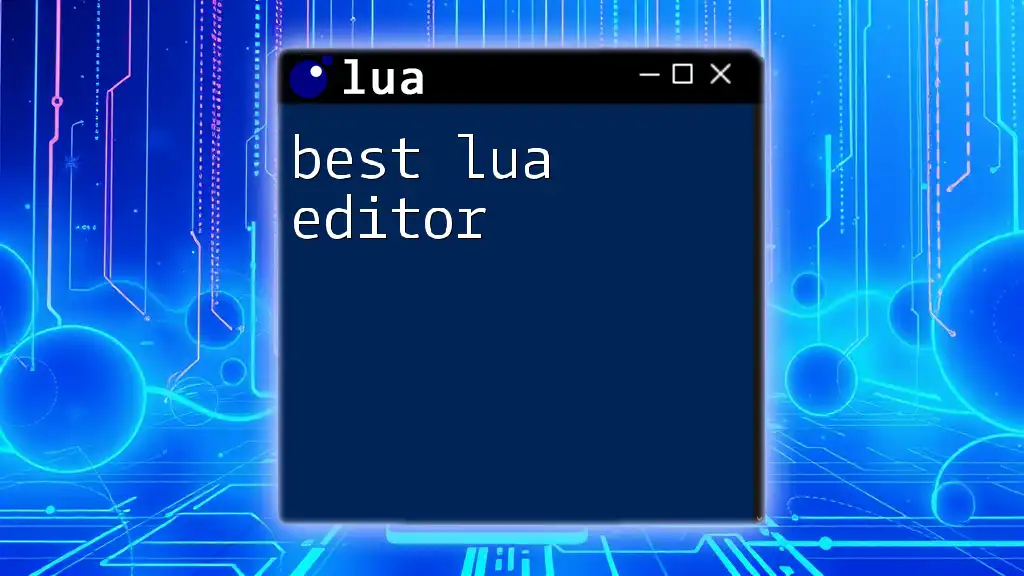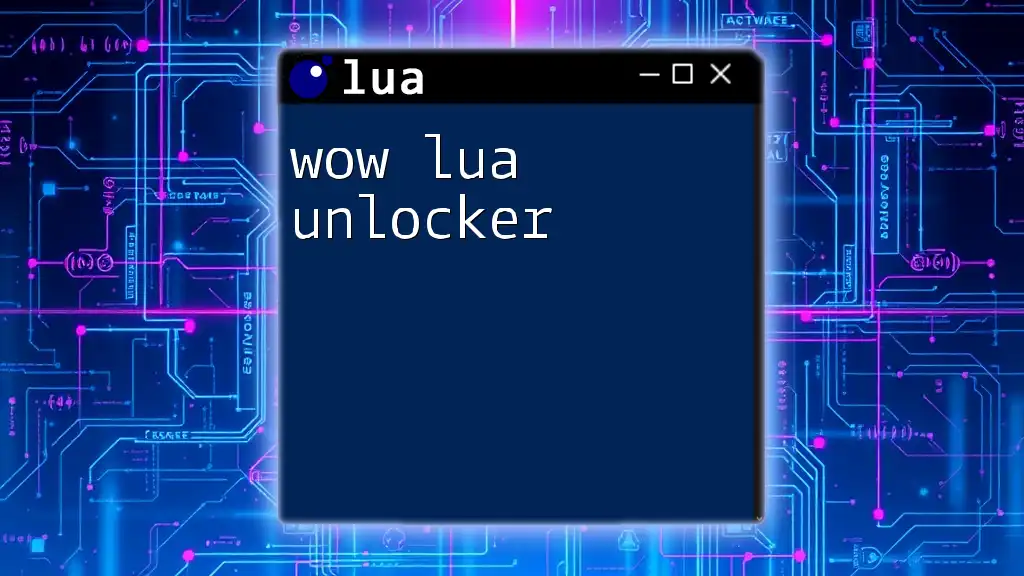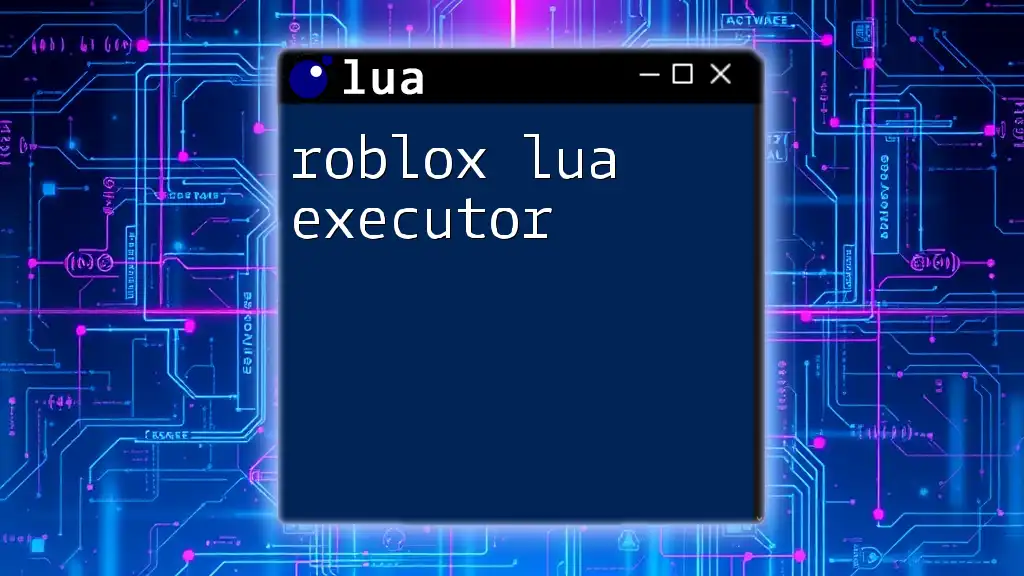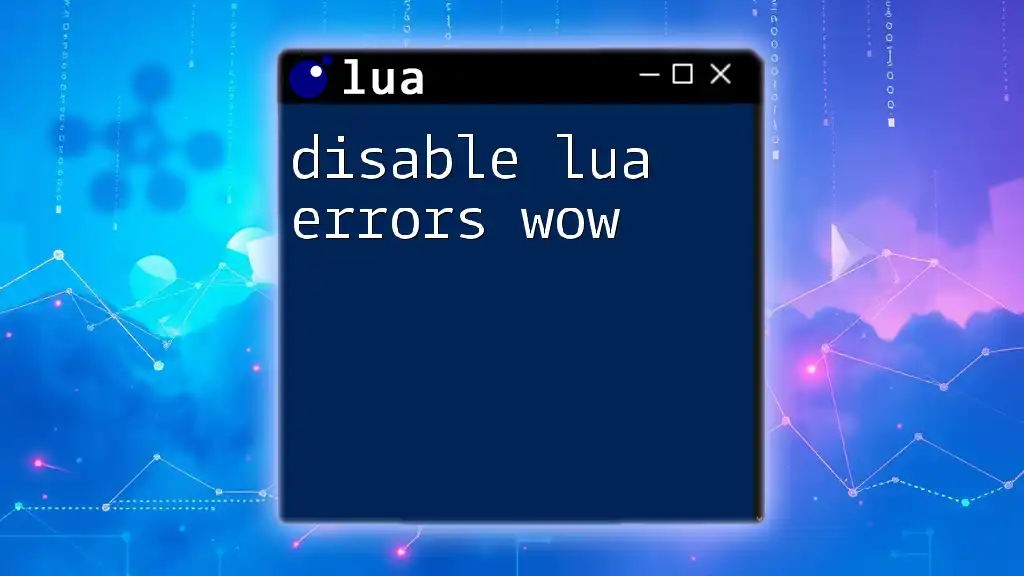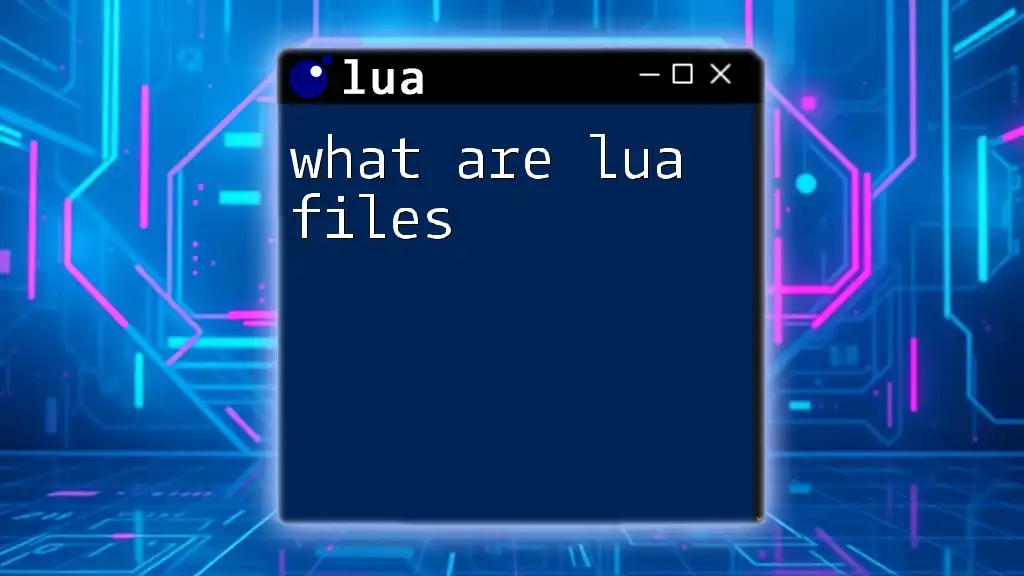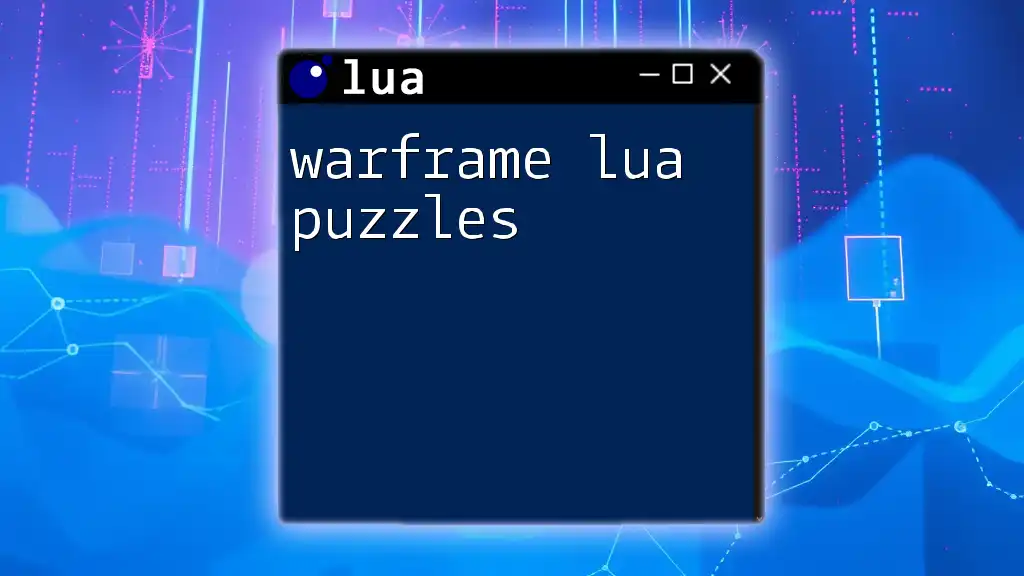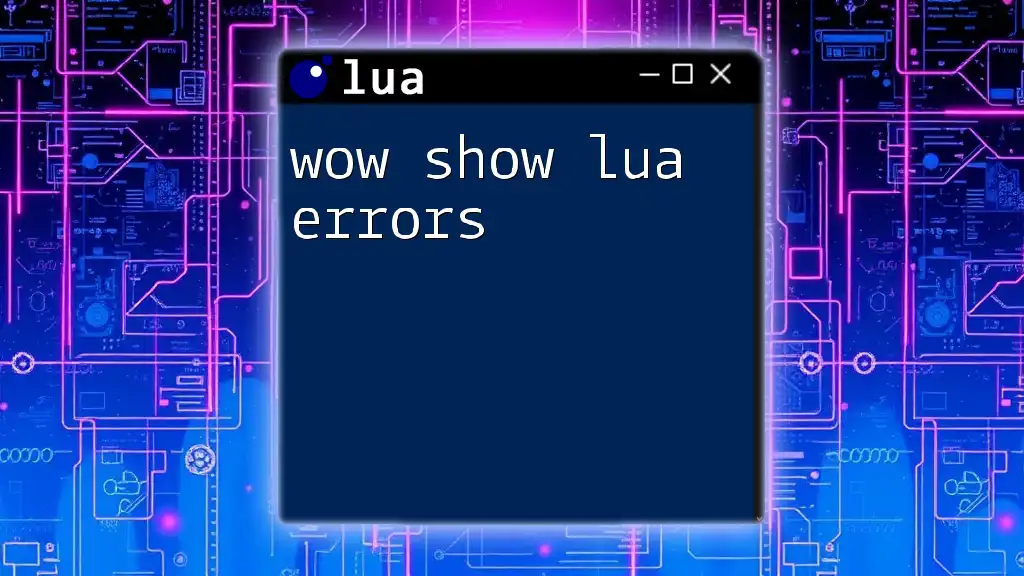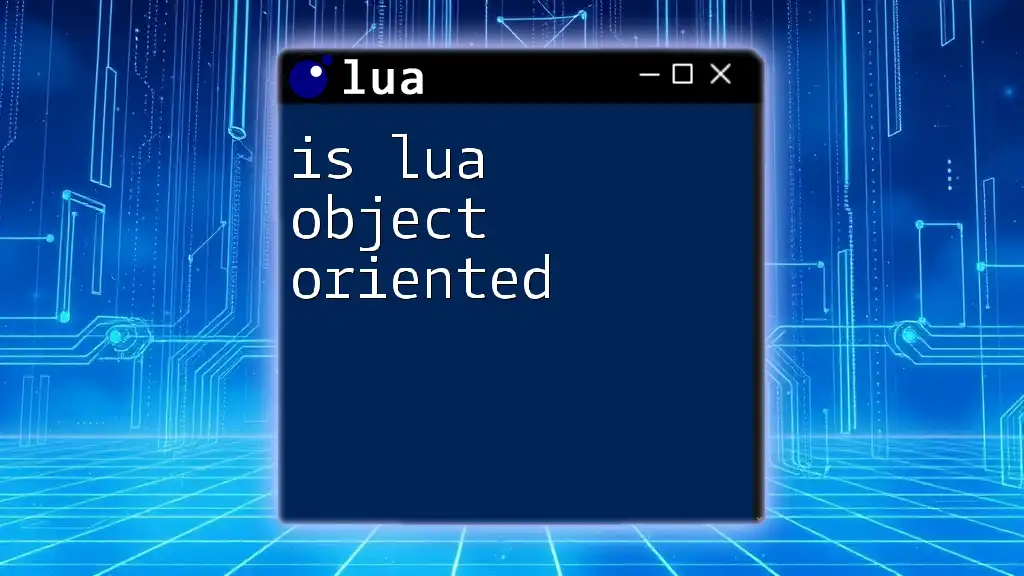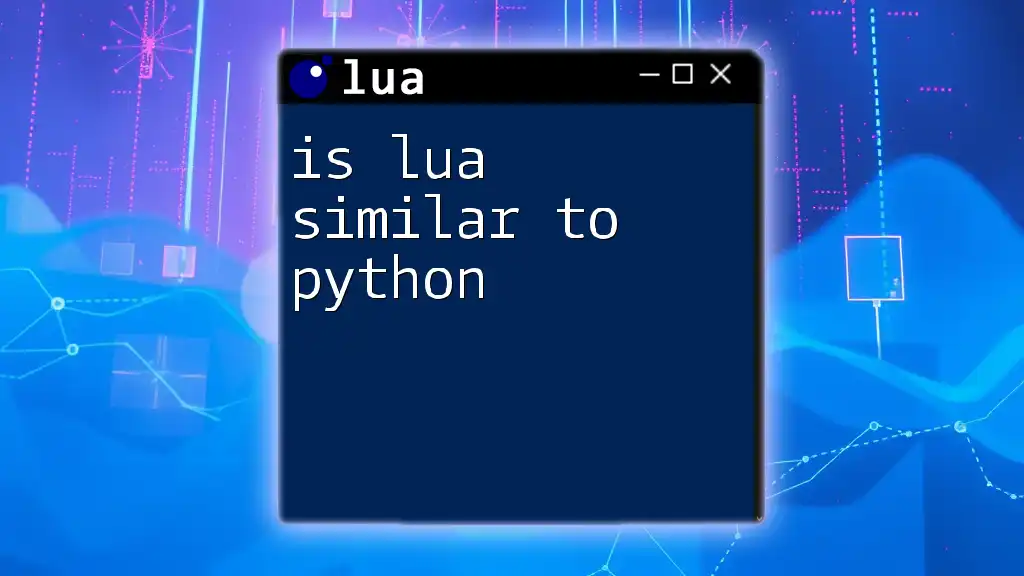When you hire a Lua developer, you're investing in a skilled professional capable of efficiently implementing Lua commands to enhance your software projects.
-- Example: Print "Hello, Lua!" to the console
print("Hello, Lua!")
Understanding Lua Development
What is Lua?
Lua is a powerful, efficient, lightweight scripting language that is easy to embed in applications. Developed in Brazil in the early 1990s, Lua has gained popularity due to its simple syntax and versatility.
Key Features of Lua:
- Extensible and Lightweight: Lua is designed to be embedded within other applications, making it highly flexible.
- Portability: Lua can run on various platforms with little to no modification, offering developers a seamless experience across different environments.
- User-Defined Types: You can define your data structures easily using tables, allowing for complex program structures.
Common Use Cases in Various Industries:
- Game Development: Lua is a popular choice in the gaming industry, used for scripting game behaviors in engines like Love2D and Unity.
- Embedded Systems: Many embedded systems utilize Lua for its lightweight characteristics and efficient execution.
- Web Development: Lua can also be integrated into web applications, particularly in high-performance scenarios.
Why Hire a Lua Developer?
Hiring a Lua developer can provide significant benefits to your development team and projects.
Benefits of Using Lua:
- Flexibility and Efficiency: Lua’s design allows developers to quickly create functional and maintainable code.
- Lightweight and Fast Performance: Lua's minimalistic design leads to quicker load times and efficiency, which is crucial in performance-intensive applications like games.
- Easy Integration with Other Languages: Lua can seamlessly interact with C and C++, making it easier to integrate with existing systems.
Applications in Game Development, Embedded Systems, and More:
With its rapid execution and ease of use, Lua has carved its niche in game development for scripting and behavioral programming, as well as in various embedded systems where memory efficiency is crucial.
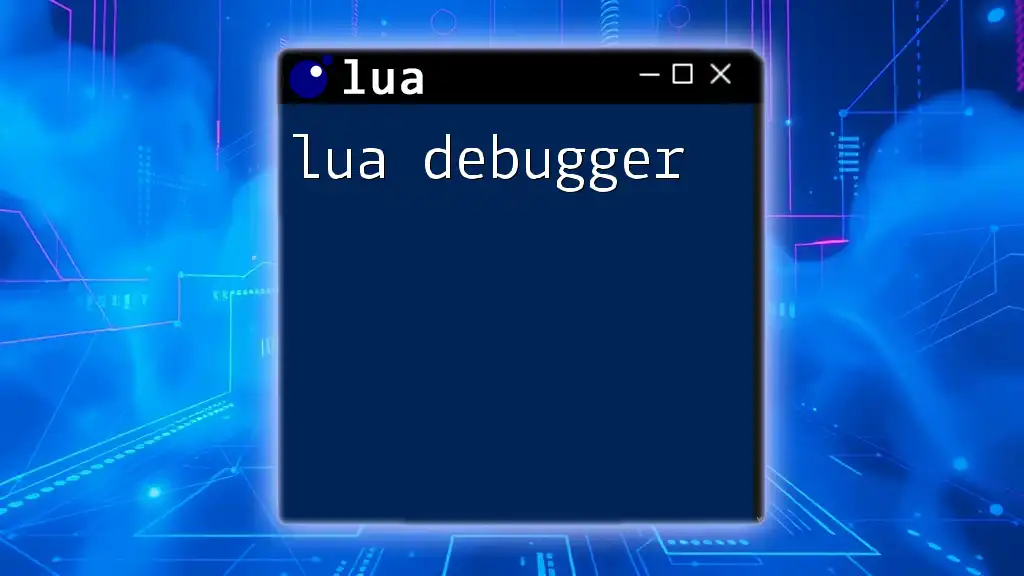
Skills and Qualities of a Good Lua Developer
Essential Skills to Look For
A good Lua developer should possess a combination of technical skills and practical experience.
Proficiency in Lua Syntax and Commands:
It is essential that a candidate showcases strong command over Lua syntax and its unique features.
Basic Constructs:
Understanding variables, data types, and functions is foundational for any Lua developer. Here is a simple example demonstrating function creation:
function greet(name)
return "Hello, " .. name .. "!"
end
print(greet("world"))
Experience with Lua Libraries and Frameworks:
Familiarity with popular libraries and frameworks such as Love2D for game development or Corona SDK for app development significantly enhances a developer's ability to contribute effectively to your projects.
Soft Skills and Project Management
While technical prowess is crucial, soft skills are equally important for a successful developer.
Communication Skills:
Due to the collaborative nature of software development, clear communication is vital. A Lua developer must be able to articulate ideas and feedback effectively.
Problem-Solving Abilities:
The ability to troubleshoot and solve problems is critical. A competent developer will find efficient solutions, reducing development time.
Team Collaboration and Agile Methodologies:
Experience in Agile methodologies can help in adapting to changing requirements and maintaining a productive workflow, making the developer an asset in team-centric projects.
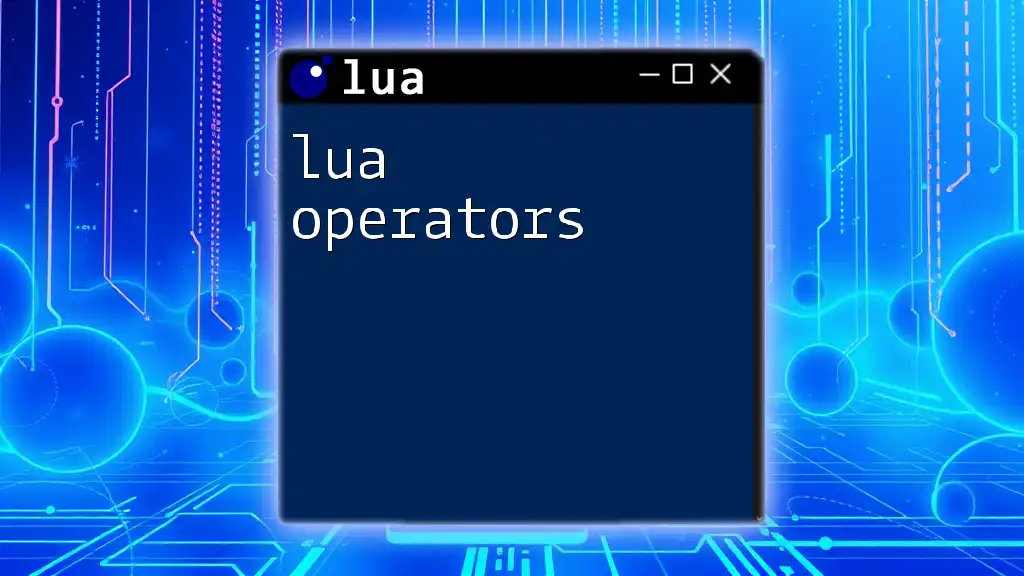
Where to Find Qualified Lua Developers
Freelance Platforms
Freelancing platforms offer a great avenue to find qualified Lua developers.
Popular Options:
- Upwork: A platform where you can find skilled developers with verified reviews and work history.
- Freelancer: Allows you to post jobs and invite bids from developers.
- Fiverr: Offers a marketplace where you can directly hire developers for specific tasks at various price points.
How to Filter the Right Candidates:
Utilize filters to sort by relevant experience, skills, and client feedback to narrow down potential hires.
Job Boards and Networking
Traditional job boards also remain a viable source for finding Lua developers.
Tech-Specific Job Boards:
Websites like Stack Overflow Jobs or GitHub Jobs focus specifically on tech positions, making it easier to find specialized talent.
Local Meetups and Conferences:
Attending local tech meetups and conferences can help you network within the community and discover potential candidates in person.
Online Communities and Forums:
Active communities and forums such as Reddit, Stack Overflow, and Lua’s official forum often contain members who might be seeking new opportunities or freelance work.
Evaluating Candidates
Evaluating the technical skills of candidates effectively ensures you make the right choice.
Screening Resumes and Portfolios:
Look for relevant experience and projects. A portfolio showcasing previous Lua projects is invaluable.
Technical Interviews:
Conduct structured interviews with questions that test both theoretical and practical knowledge.
Sample Questions:
- What is the purpose of the `table` constructor in Lua?
- Can you explain how metatables work in Lua?
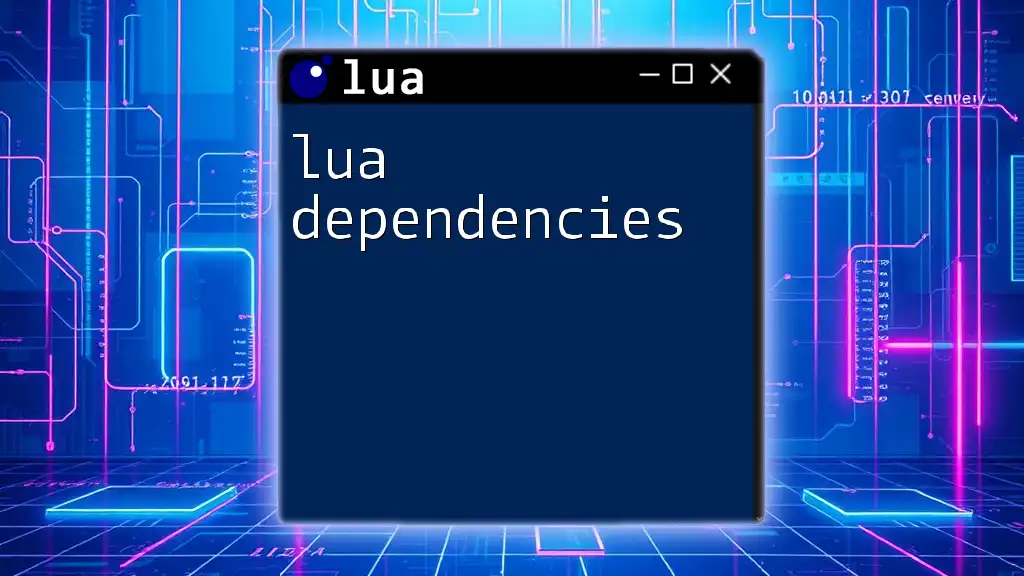
Setting the Right Expectations
Defining the Role
Clearly defining the role you are hiring for is essential.
Full-Time vs. Part-Time Contracts:
Determine if you need a full-time developer or if a part-time contract suffices based on project demands.
Specific Tasks and Projects:
Outline specific responsibilities so candidates know what skills they must bring to the position.
Compensation and Benefits
Agreeing on compensation can be a delicate matter.
Average Salary Ranges for Lua Developers:
Research salary benchmarks to offer competitive wages. Salaries vary by region and expertise but range generally based on experience and job type.
Factors Influencing Pay:
Experience, location, and the complexity of the projects are significant. Be prepared to negotiate based on these factors.
Exchange of Value: Skills, Experience, and Company Culture:
While compensation is vital, consider benefits that enhance job satisfaction, such as remote work options or continuous development opportunities.
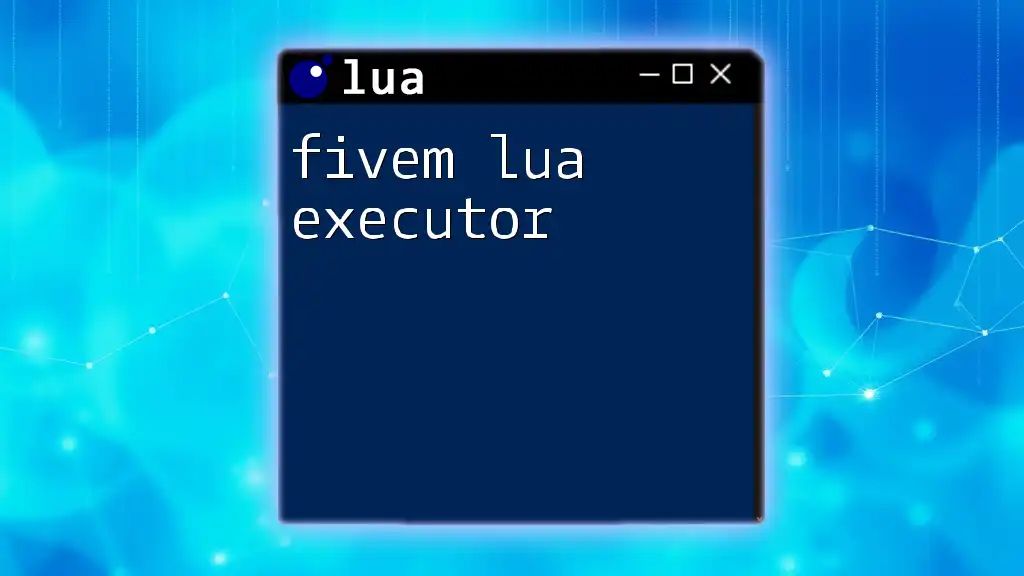
Onboarding and Integrating the Developer
Effective Onboarding Practices
A successful onboarding process helps new developers acclimate quickly.
Creating a Welcome Package:
Provide necessary resources, guidelines, and tools to help them settle in.
Setting Up a Developer Environment:
Assist them in configuring their development environment to optimize productivity from day one.
Continuous Support and Feedback
Ongoing support is crucial for maintaining morale and improving performance.
Regular Check-ins:
Schedule consistent feedback sessions to discuss progress, challenges, and areas for improvement.
Using Tools for Collaboration:
Implement collaboration tools such as GitHub for version control and Slack for communication to streamline workflows.
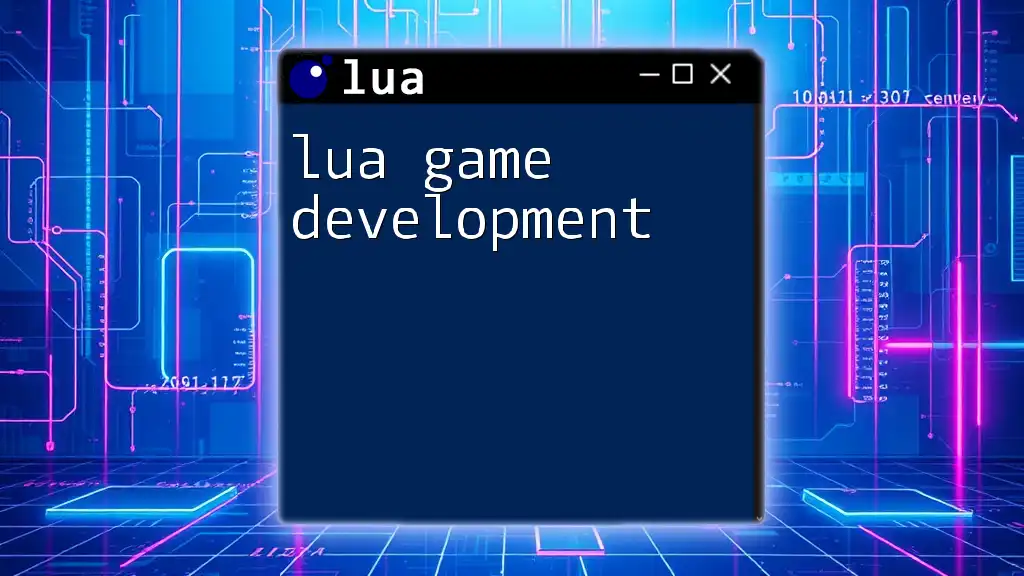
Conclusion
When you decide to hire a Lua developer, remember that their technical skills, experience, and soft skills can profoundly influence your project’s success. Finding the right candidate requires thorough evaluation and clearly defined expectations. As you embark on this process, don't hesitate to leverage the suggested platforms and resources. Start your hiring journey today, and invest in the development expertise that can elevate your projects to new heights!
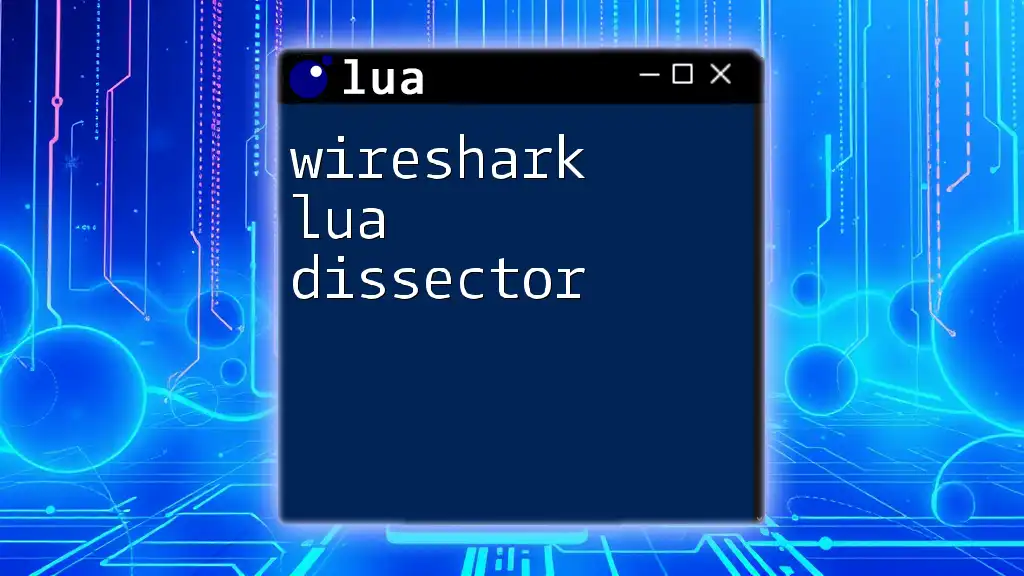
Additional Resources
To further enhance your understanding and selection process, consider accessing these resources:
- Lua Documentation Links: For in-depth learning about Lua's capabilities.
- Recommended Books and Online Courses: Platforms like Udemy and Coursera offer courses tailored to Lua.
- Networking Groups and Communities for Lua Developers: Engage with groups on Facebook, LinkedIn, and other platforms to connect with Lua talent.

